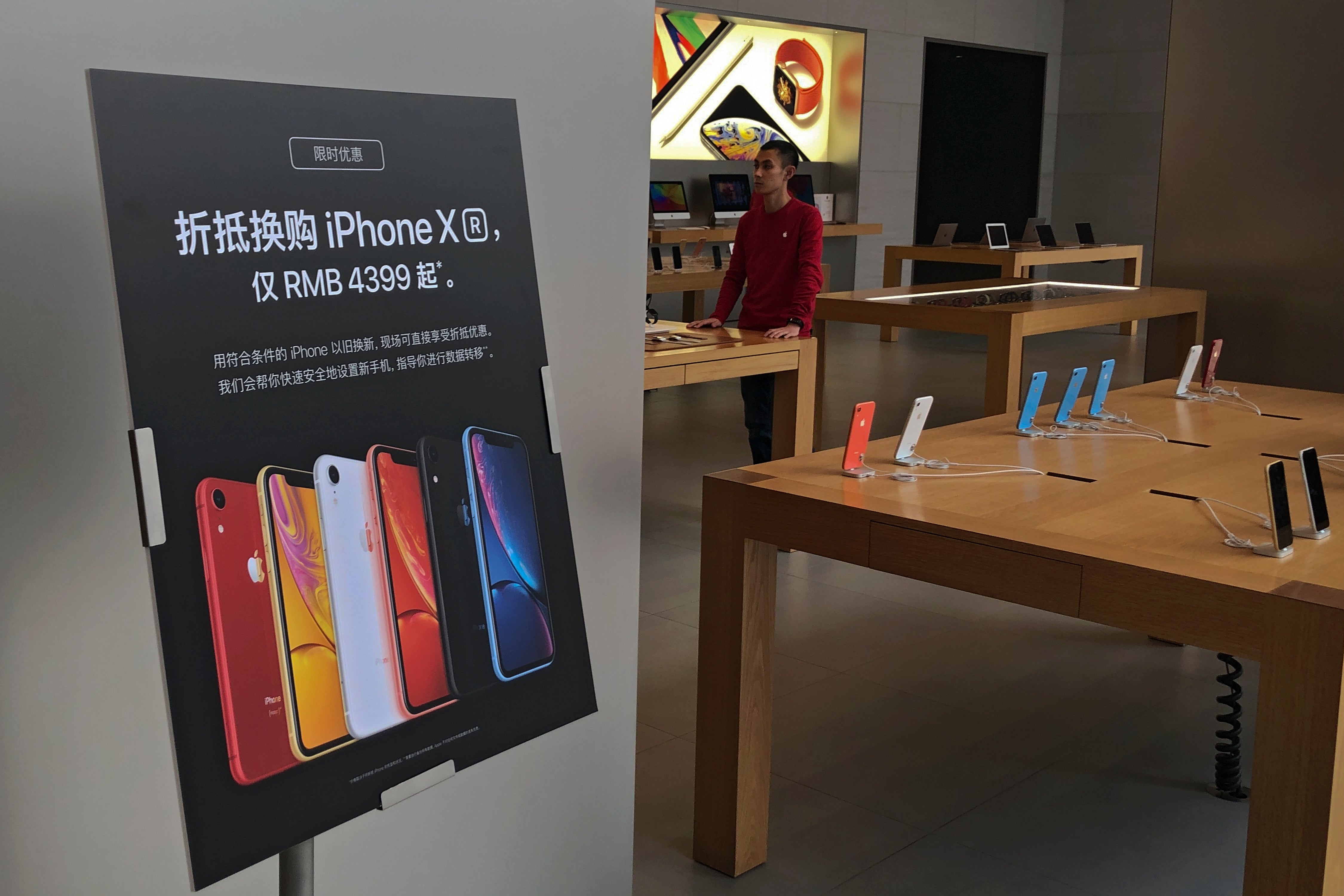Apple to pay $490 million to settle allegations that it misled investors about iPhone sales in China
Apple has agreed to pay $490 million to settle a class-action lawsuit alleging CEO Tim Cook misled investors about a steep downturn in iPhone’s sales in China

Apple has agreed to pay $490 million to settle a class-action lawsuit alleging CEO Tim Cook misled investors about a steep downturn in iPhone's sales in China that culminated in a jarring revision to the company's revenue forecast.
The preliminary settlement filed Friday in Oakland, California, federal court stems from a shareholder lawsuit focused on the way Apple relayed information about how iPhone models released in September 2018 were performing in China, one of the company's biggest markets.
Cook signaled that the new iPhones were off to a good start during an investor conference call in early November 2018, according to the complaint.
That reassurance dissolved into a huge letdown on Jan. 2, 2019 when the Cook issued a warning that Apple's revenue for the just-completed quarter would fall $9 billion below management's forecast for the period. What's more, virtually all of the sales drop was traced to weak demand in China.
It marked the first time Apple had cut its revenue guidance since the iPhone's release in 2007 and triggered its stock price to plunge 10% in the next day of frenetic trading, wiping out more than $70 billion in shareholder wealth.
Apple vehemently denied Cook deceived investors about the iPhone's sales in China between early November and early January. The Cupertino, California, company maintained that stance in the settlement documents, but said it decided to make the payment after more than four years of legal wrangling to avoid an “overly burdensome, expensive, and distracting” hassle.
The settlement was reached through a mediator after U.S. District Judge Yvonne Gonzalez Rogers rejected Apple's request to dismiss the case and set a Sept. 9 trial date.
Gonzalez Rogers is now being asked to approve the settlement in a hearing scheduled for April 30.
Thousands of shareholders who bought Apple stock in late 2018 could be eligible for a piece of the settlement, which will be distributed from of a pool that will be less than $490 million after lawyers involved in the case are paid. The attorneys plan to seek up to one-fourth, or about $122 million, of the settlement.
The $490 million payment represents less than 1% of the $97 billion profit that Apple pocketed during its last fiscal year ended in September. Apple shareholders who have held on to their shares have become wealthier too. Apple's stock price has more than quadrupled from where it stood after Cook's China warning, creating an additional $2 trillion in shareholder wealth.
Bookmark popover
Removed from bookmarks